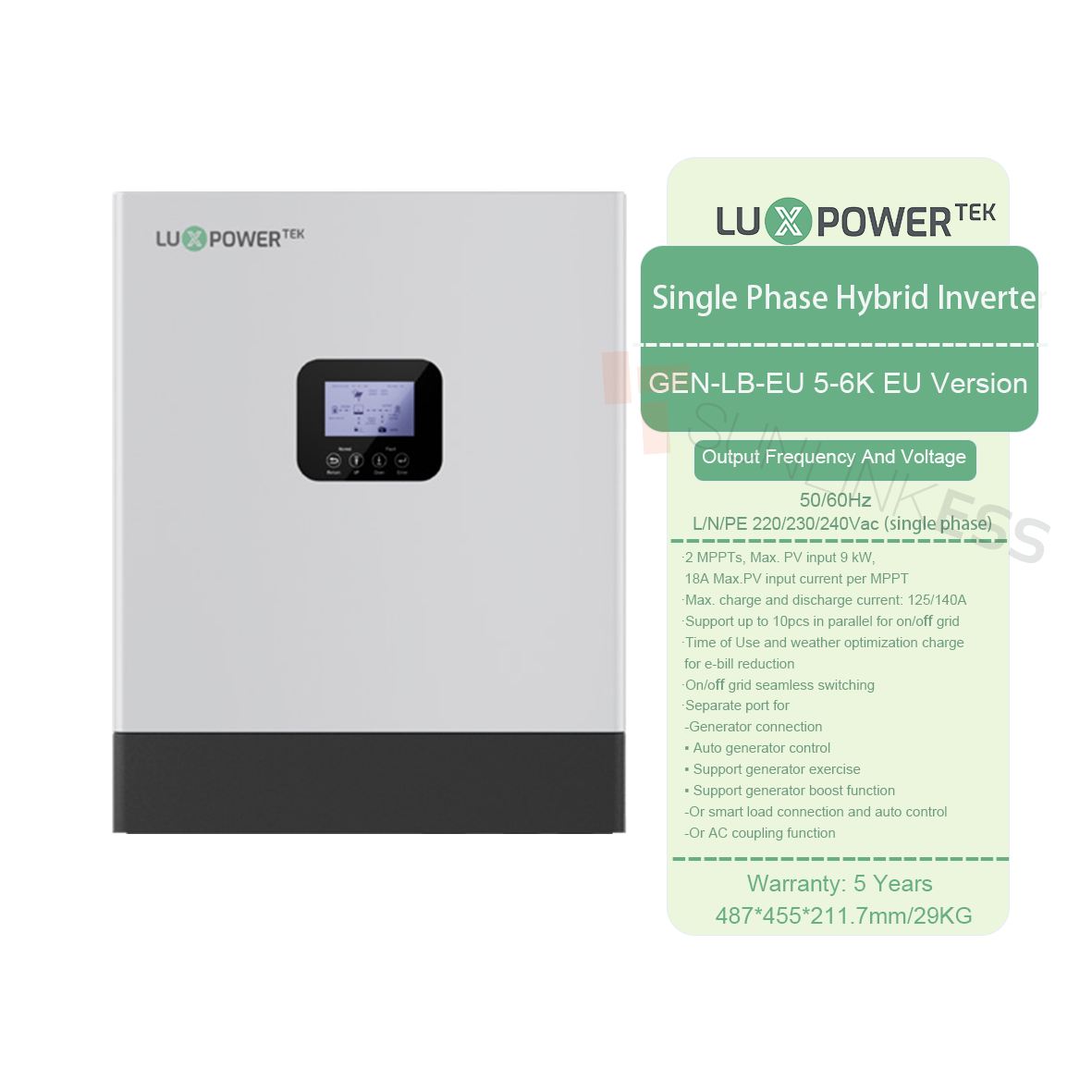The working principles of Solar Hybrid Inverter
2025-05-26
A solar hybrid inverter is an advanced type of inverter that combines the functionality of a solar inverter and a battery inverter, allowing power to be drawn from both solar panels and battery storage, along with the grid. It manages energy flow between these sources efficiently.
Working Principles of a Solar Hybrid Inverter
1. Solar Power Generation
Solar panels capture sunlight and generate DC (Direct Current) electricity.
The inverter converts this DC into AC (Alternating Current) electricity, which can be used to power household appliances.
2. Power Distribution Logic
A hybrid inverter intelligently manages power flow in the following order of priority:
a. Solar Power → Loads
The inverter first supplies power directly to the connected loads using solar energy, if available.
b. Solar Power → Battery Charging
Any excess solar energy (after meeting load demand) is used to charge the battery for later use.
c. Solar Power → Grid (optional)
If the battery is full and there’s still excess solar energy, it may be exported to the grid (in grid-tied systems with net metering).
3. Battery Discharging
When solar energy is insufficient or during the night, the inverter draws power from the battery to supply the loads.
4. Grid Power Usage
If both solar and battery power are insufficient, the inverter switches to draw power from the utility grid to ensure continuous supply.
5. Automatic Switching & Load Prioritization
The hybrid inverter automatically switches between solar, battery, and grid depending on availability and pre-set preferences.
It can also prioritize critical loads, ensuring essential devices are always powered.

Additional Features
MPPT (Maximum Power Point Tracking): Optimizes solar panel performance.
Monitoring & Control: Many hybrid inverters come with Wi-Fi or Bluetooth modules for remote monitoring via apps or portals.
Smart Energy Management: Allows scheduling of battery charging/discharging, and integration with time-of-use tariffs.
Benefits of Hybrid Inverters
Reduced dependency on the grid.
Backup power during outages.
Better energy efficiency.
Integration with renewable energy and storage systems.
If you are interested in our products or have any questions, please feel free to contact us and we will reply you within 24 hours.


